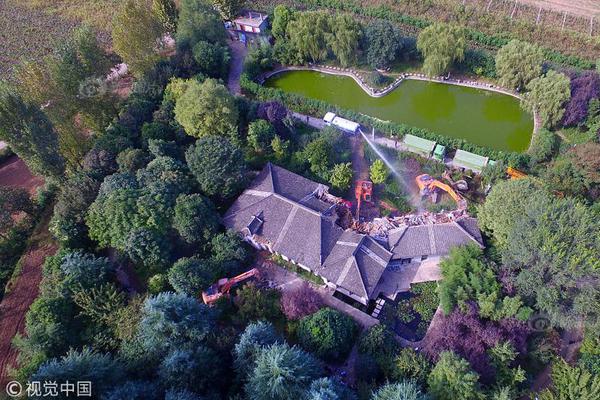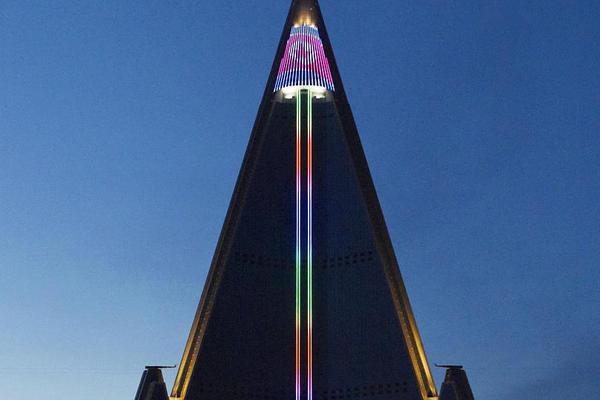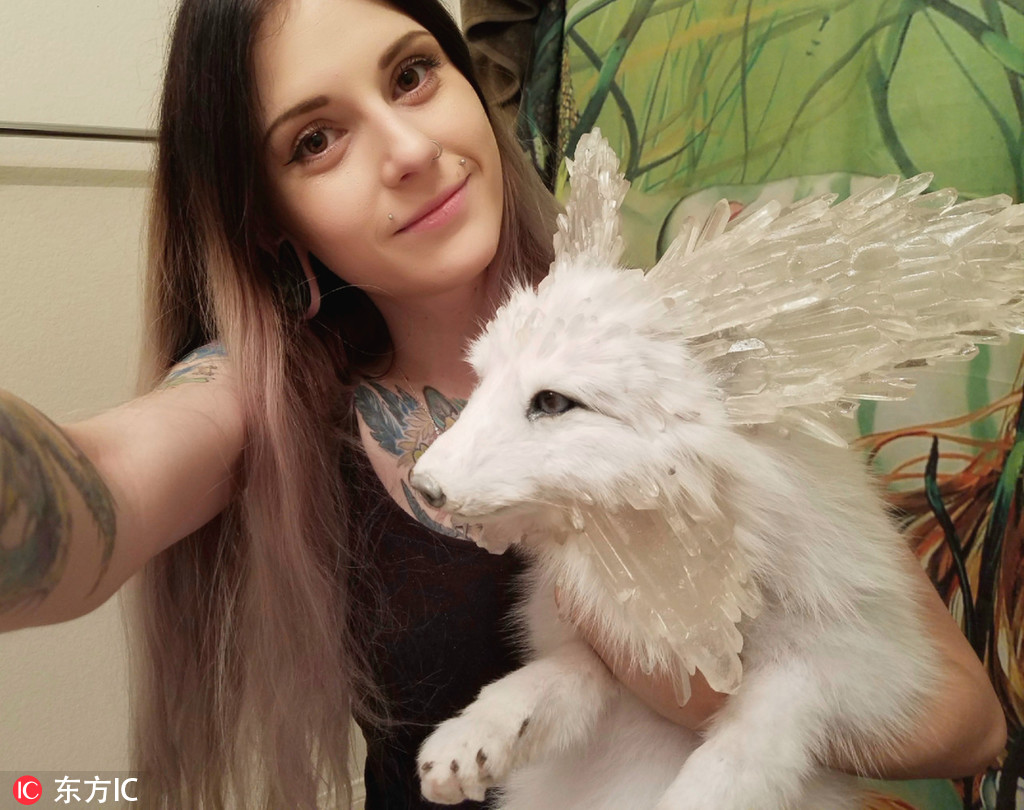Every week,Anticipation Lost in Spacehad a new story to tell.
I still remember watching old reruns of the 1960s series on WPIX 11 as a kid. The Robinson family's struggles to keep life comfy and happy while stranded on a distant alien world were captivating to my 10-year-old brain.
SEE ALSO: Wow, Netflix's 'Lost in Space' reboot series sure looks expensiveEvery week was a new adventure, a new obstacle the family would have to overcome. There were constants in the friendship between Will Robinson and Robot and in Dr. Smith's self-serving machinations. But each episode stood alone as a journey with a beginning, middle, and end.
The alien vistas hooked me, but low stress, no-commitment-required storytelling kept me coming back.
The newly released Lost in Spacereboot series from Netflix treads a different path. It still chases the same premise of telling a sort of Swiss Family Robinson-in-space story, but like so many of the other favorites from our present-day golden age of television, it has a longer story to tell.
 Original image has been replaced. Credit: Mashable
Original image has been replaced. Credit: Mashable One episode leads into the next, then the next. The beginning, middle, and end play out over the course of 10 hours. Episodes don't really stand up on their own; instead, they fill out another piece of the narrative puzzle, slowly addressing questions like what led to the Robinsons being here, is there anyone else out there, and can there be any hope of an escape?
It's a good time. Just like the original, there's a family-friendly quality to the new Lost in Space. The threats faced by the Robinsons and their fellow travelers are real, but everyone is ultimately safe. When characters take risks, you know they're going to be fine in the end.
In other words: Game of Thronesthis is not. And there's nothing wrong with that. Hopeful, generally happy stories feel like a weird kind of sci-fi in this increasingly hellish 2018, but the unforced low stakes in the Robinson family's adventures is both welcome and comforting.
Despite that, I couldn't help but think back on all of those old Lost in Spaceepisodes I watched as a kid as I wound through the reboot. I wondered what 10-year-old me would think of this new series. Surely, I'd again find myself captivated by the production; Netflix clearly spent piles of money to make the show's alien planet feel alive.
Would it be enough, though? I fell for the original Lost in Spacebecause it didn't ask too much of me. Everything I needed to know about the characters and their interpersonal relationships was contained within a single episode.
The reboot's serial pace instead builds relationships over time, and it's up to you to keep track. The content is family-friendly, but the actual storytelling demands a level of longer-term investment.
None of this is new, of course. Serial storytelling on TV is all the rage these days. Adult audiences, at least, have come to expect that latching on to a new show means investing in its story. There's still plenty of programming that focuses more on a threat/monster/conflict-of-the-week approach, but it's not what's popular.
 Original image has been replaced. Credit: Mashable
Original image has been replaced. Credit: Mashable This is especially true for streaming services like Netflix and Hulu, which drop full seasons worth of programming in a single day. Can you think of any story-driven Netflix series that embraces a conflict-of-the-"week" approach? They're all ongoing stories, with each new episode building on the last one.
Part of this is definitely a product of the way TV has evolved over the last 20 years. Late '90s programming like The Sopranosand Star Trek: Deep Space Ninegot audiences hooked on continuing stories, while later shows like Lostand Fringe came along and doubled down.
But conflict-of-the-week programming still exists on TV. It's most prevalent in sitcoms -- look at Black-ishor It's Always Sunny in Philadelphia-- but there are other shows, like Criminal Minds, that stick to weekly, one-and-done stories. Shows where, for any connective tissue that ties a run of episodes together, you can't synopsize a full season in a single paragraph.
That breed of storytelling doesn't seem to exist on Netflix, Hulu, and other streaming services, except in the cases of talk shows and anthology series. The all-at-once release format -- and the production process that allows it to happen -- is almost certainly responsible for that.
It's a shame. As much as I would heartily recommend Lost in Spaceto anyone that enjoys sci-fi stories, I can't escape the feeling that the reboot casts aside the core elements that drew me to the original series in the first place.
Topics Netflix
(Editor: {typename type="name"/})
 'The Last of Us' Season 2, episode 4: Why Ellie sings 'Take on Me'
'The Last of Us' Season 2, episode 4: Why Ellie sings 'Take on Me'
 The cutest great
The cutest great
 Apple patent describes iPhone design with retractable screen
Apple patent describes iPhone design with retractable screen
 Man opens bag of crisps to find only one inside. Yes, you read that right.
Man opens bag of crisps to find only one inside. Yes, you read that right.
 Shop Owala's Memorial Day Sale for 30% off tumblers
Shop Owala's Memorial Day Sale for 30% off tumblers
SpaceX's Starlink will provide free satellite internet to families in Texas school district
 To help close the digital divide, SpaceX will offer satellite internet to the education sector.The c
...[Details]
To help close the digital divide, SpaceX will offer satellite internet to the education sector.The c
...[Details]
Apple patent describes iPhone design with retractable screen
 Apple's far-flung concepts for a future iPhone seem to be inspired by a famous snack food. The compa
...[Details]
Apple's far-flung concepts for a future iPhone seem to be inspired by a famous snack food. The compa
...[Details]
After epic drought, parts of California now have too much snow
 Finally. California, which has endured more than five years of epic drought that forced officials to
...[Details]
Finally. California, which has endured more than five years of epic drought that forced officials to
...[Details]
Snap told gun safety group to buy ads on its videos or NRA might, leaked emails show
 A gun safety group was in talks to participate in an a featured editorial video story on Snapchat la
...[Details]
A gun safety group was in talks to participate in an a featured editorial video story on Snapchat la
...[Details]
NYT Strands hints, answers for May 5
 If you're reading this, you're looking for a little help playing Strands, the New York Times' elevat
...[Details]
If you're reading this, you're looking for a little help playing Strands, the New York Times' elevat
...[Details]
Meet Orisa, the 24th 'Overwatch' hero
 This is Orisa, a quadrupedal robot with an automatic projectile cannon for an arm, and she is the la
...[Details]
This is Orisa, a quadrupedal robot with an automatic projectile cannon for an arm, and she is the la
...[Details]
Twitter will live stream more than a dozen esports tournaments in 2017
 Twitter is teaming up with two of the biggest esports organizations in the world to live stream more
...[Details]
Twitter is teaming up with two of the biggest esports organizations in the world to live stream more
...[Details]
Now you can order pizza with your shoes, because using your phone is so last year
 Constant innovation. It's a well-known motto of the pizza industry.Oh wait. It's not. But with the r
...[Details]
Constant innovation. It's a well-known motto of the pizza industry.Oh wait. It's not. But with the r
...[Details]
The Best Gaming Concept Art of 2016
Amazon, Apple, Microsoft and Twitter join bathroom fight with trans teen
 Transgender teen Gavin Grimm has received the backing of dozens of corporations -- including heavywe
...[Details]
Transgender teen Gavin Grimm has received the backing of dozens of corporations -- including heavywe
...[Details]
Ryzen 5 1600X vs. 1600: Which should you buy?
Jennifer Lopez's backup dancers stole the show and got engaged during a concert

接受PR>=1、BR>=1,流量相当,内容相关类链接。